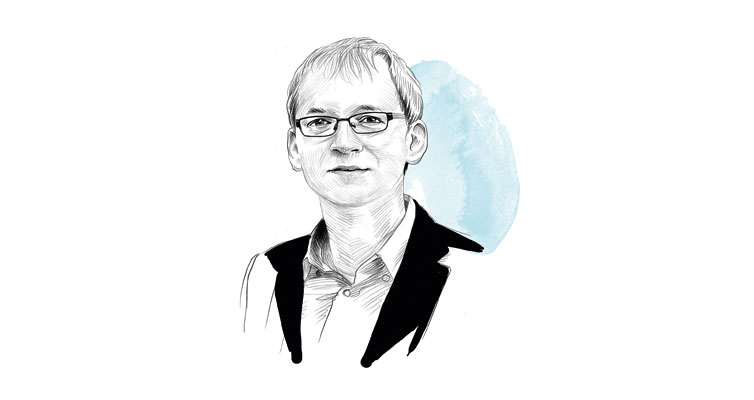Background
Our job: to promote decent work
We promote employment by training people for jobs and enabling companies to employ staff on good terms. To do this, we need to maintain an overview of supply and demand on the labour market. To boost the supply of workers, we ensure that courses at universities and vocational colleges are geared to the needs of labour markets. To strengthen businesses, we ask what has to happen to enable them to invest, grow and create jobs.

TILMAN NAGEL
heads GIZ’s Competence Centre for Education, Vocational Education and Training, Labour Markets.
tilman.nagel@giz.de
This was precisely what we did when advising the Government of the Republic of Moldova on how to attract foreign direct investors. Within five years, more than 8,000 jobs were created in the automotive supply industry. At the same time, we supported the country in introducing a dual vocational education and training system. After four years, 20 per cent of training places were already ‘dual’, with young people learning part of their profession in a company and the other part in school. This project was commissioned by the German Federal Ministry for Economic Cooperation and Development (BMZ) and the Swiss Agency for Development and Cooperation (SDC).
Cash for Work
In many of our partner countries, the labour markets do not function properly and there is a lack of information about jobs and career opportunities. We were involved in remedying this situation in Egypt, for example, where – on behalf of BMZ – we provided advice on establishing job centres. These are run by a non-governmental organisation and financed by fees from companies. These centres have enabled 9,000 young Egyptians to find work in recent years.
In crisis situations, cash-for-work measures have proven particularly effective. We implement this instrument on behalf of BMZ in countries such as Jordan, where refugees are paid by the day to collect and sort rubbish. These initiatives have even resulted in the creation of recycling companies – and with them permanent jobs.
Expand education and training
Schemes such as Cash for Work and better job placement services deliver rapid results. But the only way to reach the majority of the unemployed and underemployed population is through structural measures. We need to expand education and training systems, improve conditions for investors, ensure reliable governance and fight corruption.
We have therefore set two goals for the future. Firstly, we need to target and bring the private sector on board even more directly. To achieve this, we plan to continue harnessing the experience of successful medium-sized German companies and, at the same time, to strengthen medium-sized enterprises in Africa. Industrial zones will play an important role in this connection. They offer companies very attractive conditions such as a reliable electricity supply, good roads or a port, wastewater treatment plants, tax incentives and simplified customs procedures. Zones of this kind can play a pioneering role. They enable a favourable environment to be created quickly in a defined area without having to set about overhauling national legislation.
Secondly, we need to reach larger sections of the population. This calls for an integrated approach in which the development of social security systems, high-quality training and education, good infrastructure and inclusive financing services are more closely interlinked. —
published in akzente 3/18
